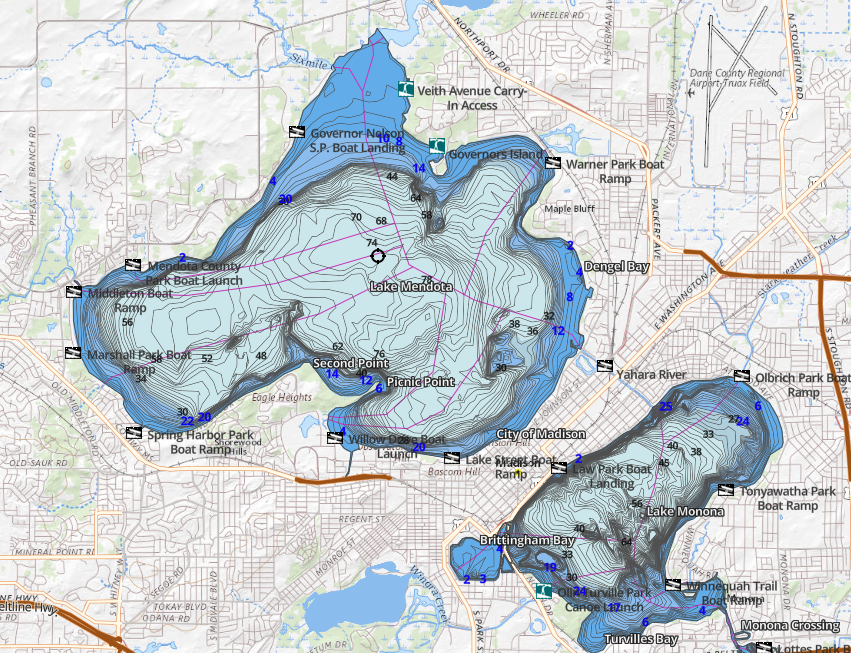Hub Updates is the UW-Madison data science community's resource for news, trainings & workshops, and professional opportunities in data science.
If you have suggestions for other news, events, and opportunities to include or feedback on the newsletter, send us an email at newsletter@datascience.wisc.edu.
June 2, 2021
|
|
|
|
|

|
In collaboration with the Nelson Institute for Environmental Studies, we're hosting Geospatial Data Carpentry on July 6, 8, 12, 14, & 16, virtually. This workshop focuses on using R to work with geospatial data to work with raster and vector data. We use a flipped format for this workshop: learners will spend time ahead of the meeting times working through the lesson content, and then we will meet to discuss what was learned. Register starting June 7!
|
|
|
|
|
Upcoming Trainings & Workshops
|
|
|
|
June 10, University of Wisconsin Data Analytics Boot Camp
Learn Intermediate Excel, Python, JavaScript (D3.js, Leaflet.js), HTML5/CSS, API Interactions, SQL, Tableau, Fundamental Statistics, Machine Learning, R, Git/GitHub, and more. Study part-time through an innovative online format, combining engaging content to work through on your own schedule and interactive live classes with expert instructors. Learn more here.
REU Software Carpentry for Undergraduate Students
Software Carpentry aims to help researchers get their work done in less time and with less pain by teaching them basic research computing. Topics that will be covered are Unix Shell, Git/Github, and Python. Sign up here. Register by June 7th.
|
|
|
|
|
Upcoming Seminars & Events
|
|
|
|
No seminars to share at this time.
|
|
|
|
Undergraduate Assistant, Center for Limnology at University of Wisconsin-Madison
The Center for Limnology is seeking an undergraduate assistant to work with the Hanson and Dugan Labs in the area of freshwater data science. We are looking for someone with knowledge and experience in compiling software in Unix, especially on macOS, and skills in the GNU Fortran Compiler, the Intel Fortran Compiler and the GNU C Compiler (GCC). We encourage potential candidates to send an email to Robert Ladwig (rladwig2@wisc.edu) with a CV and a brief statement of interest.
|
|
|
|
|
Professional Opportunities
|
|
|
|
On Campus
Research Computing Facilitator, Center for High Throughput Computing
The Research Computing Facilitator will work with researchers on campus and across the country to find appropriate computationally-based solutions to problems impeding their research, expecting that many will leverage the world-class computing capabilities of CHTC and its partners, including the NSF Open Science Grid (OSG). Learn more here and apply by June 21.
Neuroimaging Data Specialist, Alzheimer's Disease Research Center Biomarker Core
The data specialist will support cutting-edge neuroimaging research studies in early Alzheimer's disease, conducting research experiments, collecting, analyzing, and interpreting data. Learn more here and apply by June 2.
GIS Professional Programs Director, Department of Geography
The Program Director will lead the development, implementation, and ongoing operations of the GIS Professional Programs (GISPP) unit to ensure effectiveness in meeting strategic, departmental, and student developmental goals, engaging in direct administrative oversight and curriculum development. The successful candidate will have a broad knowledge of the cartography and GIS industry and experience with online learning in higher education. Learn more and apply here by June 20.
Off Campus
Postdoctoral Positions in Computational Genomics and Statistics, Harvard
They are hiring two postdoctoral fellows to work on comparative and population genomics of
conserved non-coding elements in birds. The successful candidates will develop statistical
methods and computational tools to infer evolutionary forces acting on non-coding sequences,
building on their published work on PhyloAcc. These are NIH-funded positions, which will be based at Harvard University in the groups of Scott Edwards (Organismic and Evolutionary Biology), Jun Liu (Statistics), and Tim Sackton (Bioinformatics). Learn more here.
Applications for Culturally Relevant Education in Environmental Data Science (CREEDS) Workshop
This workshop will be a 10-hour commitment of asynchronous and synchronous learning, collaborating, and co-creating. The ultimate goal of the workshop is to contribute to making environmental data science more inclusive and accessible to students. We will learn from each other, and we will use insights from our discussions to provide recommendations and a framework for future interdisciplinary collaborations aiming to co-create socially and culturally relevant curricula. Apply by June 4th. Learn more here.
|
|
|
|
|